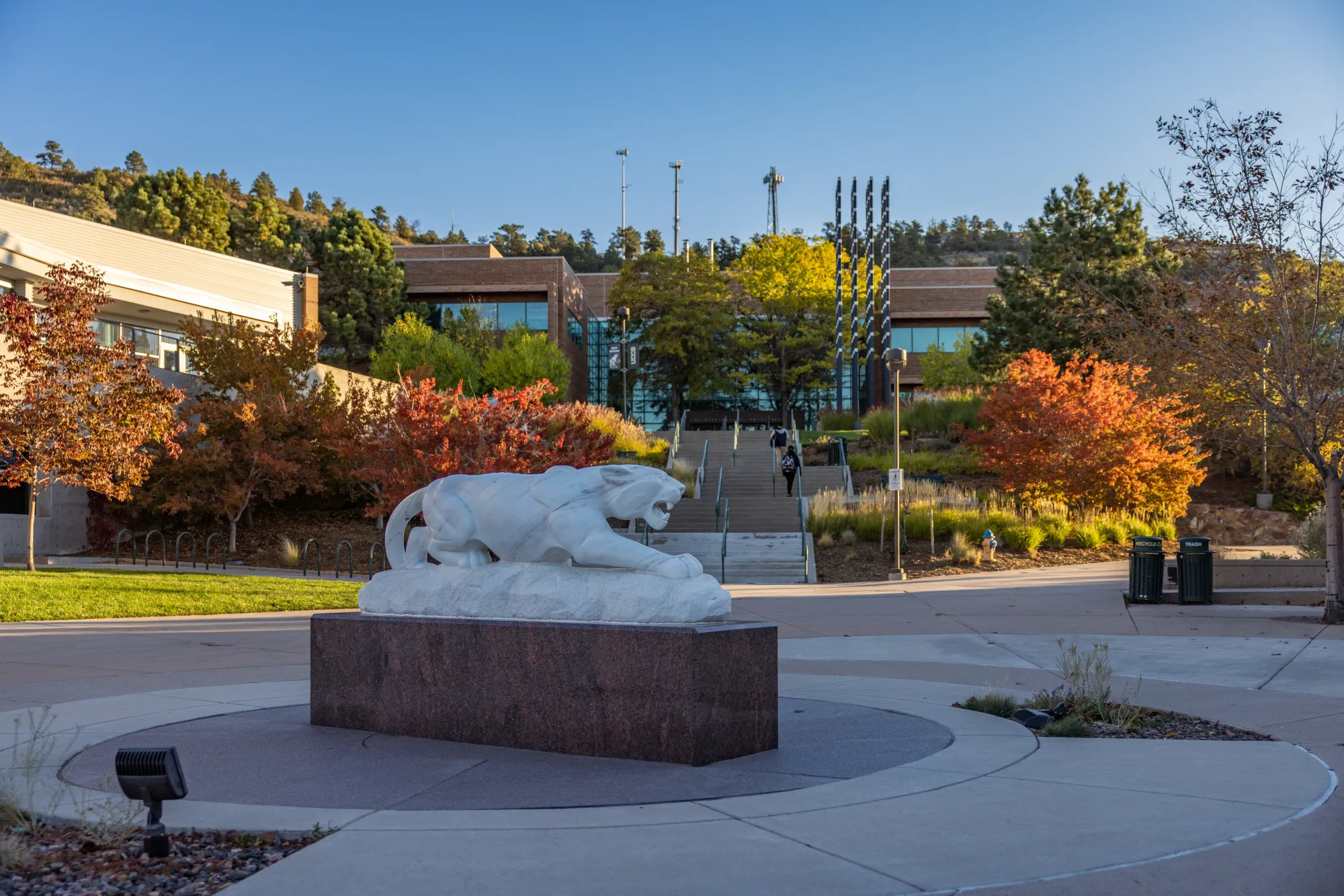
First-Year Rhetoric & Writing Program
About the Program

The First-Year Rhetoric & Writing Program values student choice, contemporary and classical rhetoric, and faculty expertise.
Rhetoric is a discipline that examines diverse forms of persuasion across genres, cultures, and historical moments. Rhetoric is also an art that enables people to communicate clearly and effectively in many different modes.
When you take these courses at UCCS, you’ll explore rhetorical and writing theories and processes. You’ll use what you learn to analyze and produce written, oral, visual, and digital texts. These courses will help you to strengthen your critical thinking and communicative skills, and they fulfill the core writing course requirements in UCCS's Compass Curriculum.
Outcomes
Students who complete courses in the First-Year Rhetoric and Writing Program achieve the following learning outcomes:
Rhetorical Knowledge: Students will learn and apply key rhetorical concepts by analyzing and composing a variety of texts and responding to and recognizing diverse rhetorical situations and purposes for a range of audiences; students will consider constraints that are inherent to different environments and acquire the ability to transfer rhetorical concepts to contexts beyond the classroom.
Critical Thinking, Reading, and Composing: Students will develop strategies for critical thinking, analytical reading, academic research, and rhetorically informed writing.
Processes: Students will employ rhetorical knowledge to develop a recursive, transferable writing process suited to academic aims; this process may include reading, inventing, drafting, collaborating, reflecting, and revising.
Knowledge of Conventions: Students will develop knowledge of genre conventions, syntactical structures, and commonly accepted citation and format styles for rhetorical impact and to protect intellectual property.
Habits of Mind: Students will name and value habits of mind that help them flourish in a variety of disciplines and contexts. Students will practice curiosity, creativity, persistence, and metacognition.
Multimodal Composition: Students will be able to strategically compose and rhetorically analyze a range of texts including print, electronic, visual, verbal, and aural texts such as presentations, essays, webpages, videos, podcasts, and/or other formats.
Program Requirements
First Core Writing Requirement
UCCS students choose among three options for their first core writing course. Any of the options will fulfill the first core writing requirement for your degree, and all three options are designed for incoming college students.
The courses offer different amounts of built-in support and move at different paces.
Second Core Writing Requirement
How you complete your second core writing requirement depends on your major.
ENGL 1308 & 1310 Themes
English 1308 and 1310 courses have a variety of themes. Click to read about each instructor’s theme.
ENGL 1410 Themes
English 1410 courses have a variety of themes. Click to read about each instructor’s theme.